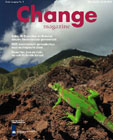Working with nature
 We all know that technology is a vital weapon in our efforts to tackle climate change, but as Caro Cowan argues, we are forgetting about a key technology that is cost effective, readily available and tested over hundreds of years: nature's technology.
We all know that technology is a vital weapon in our efforts to tackle climate change, but as Caro Cowan argues, we are forgetting about a key technology that is cost effective, readily available and tested over hundreds of years: nature's technology.
By Caro Cowan
Climate change is the greatest long-term threat to global biodiversity. Against a background of degraded habitats, increasing species loss and growing levels of habitat loss, climate change will only serve to make these problems worse. It's a stark message. And it gets worse climate change is already affecting biodiversity. The IPCC found that 89 per cent of observed biological changes in Europe were consistent with global warming. In the UK we have seen the leafing date of oak trees advance by three weeks. In Costa Rica the golden toad is being held up as the first climate change extinction. As conservationists we know that we need urgent action to prevent the worst damage if we are to retain the richness and variety of biodiversity that currently exists.
But it is not just the conservationists who should be acting on this stark warning. Without healthy and resilient ecosystems society will fail in its efforts to adapt to the consequences of climate change. Increasing the ability of ecosystems to cope with climate change in turn increases the resilience of society in the face of climate change read more »
This article is a part of the magazine 'Climate Adaptation in Europe'
December 2009
 Synergos Communication
Synergos Communication





